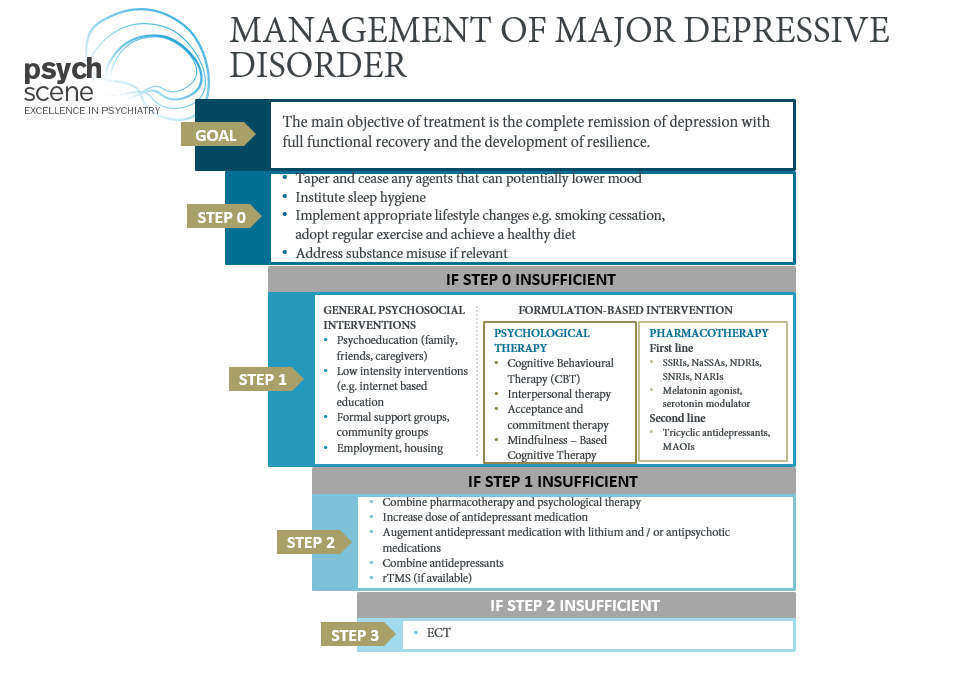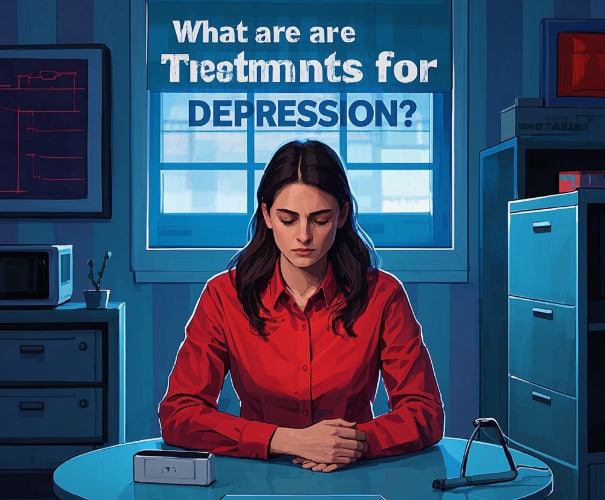The term “depression” may sound unfamiliar, but it has actually been around for a long time. As early as ancient Greece, the physician Hippocrates mentioned a similar condition called “melancholia.” He believed that this state was caused by an imbalance of fluids in the body, leading to persistent sadness and an inability to find joy.
What we now refer to as depression is actually a psychological problem that causes prolonged low mood, feelings of helplessness, and even despair. It is not simply a case of being in a bad mood, but a health issue that needs to be taken seriously.
I. What is depression?
If you or someone close to you has been feeling low for the past few weeks and can’t seem to muster the energy to do anything, it could be a sign of depression.
Common symptoms include:
If you notice these symptoms lasting for more than two weeks, don’t ignore them. It is recommended that you seek professional medical advice as soon as possible to see if you are suffering from depression.

II. Why do people get depression?
Scientists have conducted extensive research on depression, and currently, there are two widely accepted theories.
1. Social adaptation hypothesis
This theory suggests that some people exhibit symptoms of depression as a way to attract attention and help from others.
For example, Jesse’s parents were getting divorced. When he heard the news, his grades suddenly dropped, and he often skipped school and stayed in bed. Seeing their child like this, his parents decided not to divorce for the time being. As a result, Jesse’s condition gradually improved.
As he grew up, whenever he encountered problems he didn’t want to face, Jesse would become depressed again. His subconscious told him, “Only when I look bad will others care about me.”
So, if you find yourself particularly prone to emotional breakdowns at certain times, consider whether these emotions are sending a message to others. Is there something behind them that is making you feel uncomfortable?
2. Individual adaptation hypothesis
Another theory suggests that depression is actually a form of self-protection. When a person feels overwhelmed or unable to cope with stress, they may choose to escape reality in order to reduce their suffering.
For example, some people are afraid of failing an exam, so they simply don’t take it. Others are afraid of being ridiculed, so they don’t dare to leave the house. Although these behaviors seem negative, they are actually just a way of protecting themselves from harm.
In such cases, support from family and friends is very important. You can encourage them to take the first step, even if they fail. Studies have shown that some people with mild depression are actually better at thinking than the average person, and if this trait is guided properly, it can become an advantage.
However, the situation is different for people with severe depression. Their brains react more slowly, making it more difficult for them to solve problems, which makes them more prone to falling into a vicious cycle.
III. How is depression treated?
The good news is that depression is treatable. Currently, the two most common methods are medication and psychotherapy. These two methods work best when used together.
1. Medication
Antidepressants are one of the most important tools for treating depression. However, these drugs usually take several weeks to take effect and have some side effects, such as drowsiness, fatigue, or weight gain.
Because they take time to work and have noticeable side effects, many people reduce their dosage or stop taking them on their own. However, this is actually very dangerous and can cause the condition to recur or even worsen. Therefore, it is recommended to take medication under the guidance of a doctor and combine it with other treatment methods.
2. Psychological treatment
Psychological treatment is a key part of recovering from depression. Here are some common types of psychological treatment:
(1) Cognitive behavioral therapy (CBT)
The main idea behind this method is that many people with depression have distorted views of themselves. They often feel that they are not good enough or that the world is a threatening place.
Psychologists help patients identify these negative thoughts and find the logic behind them. Then, they work together to practice thinking about problems in a more positive and reasonable way.
For example, doctors will help patients analyze negative thoughts that “automatically pop up,” such as “I’m useless” or “nobody likes me.” Through constant practice, patients will gradually learn how to control these thoughts and prevent them from affecting their emotions.
A research team conducted an experiment: 40 patients with depression were divided into two groups, one group only took medication, and the other group received medication and psychological treatment at the same time. The results showed that the latter group recovered faster and better.
(2) Family therapy
The family environment has a great impact on depression. If the atmosphere at home is tense and communication is poor, it is easy for family members to develop emotional problems.
Conversely, if someone in the family has depression, it can also put pressure on others. For example, studies have found that if one parent has depression, there is a 70% chance that their children will also develop similar symptoms.
Family therapy aims to reduce the burden on patients by improving the way family members interact with each other. A counselor will talk with the whole family on a regular basis to help everyone find better ways to get along.
(3) Morita therapy
Morita therapy emphasizes “going with the flow.” It advocates that patients accept emotional fluctuations in reality rather than trying desperately to control them.
This method includes writing diaries, reading books, and group discussions. Under the guidance of a professional teacher, patients will gradually learn to accept themselves, stop obsessing over perfectionism, and focus their attention on more meaningful things.
(4) Psychoanalysis
Psychoanalysis focuses on the unconscious mind. For example, why do some people always feel that they have done something wrong? Why do they always strive for perfection?
The answers to these questions are often hidden in their childhood experiences. By recalling dreams, fantasies, or past events, patients can slowly understand their inner selves with the help of a psychologist and thus better accept themselves.
IIII. How to prevent and cope with depression?
In addition to treatment, there are also things you can do on a daily basis to prevent or alleviate depression.
1. Maintain a regular schedule
Go to bed and wake up at the same time every day to ensure adequate sleep. Eat a balanced diet with plenty of fruits and vegetables and avoid foods high in oil and sugar.
2. Exercise more and sit less
Exercise helps the body release endorphins, which are substances that make you feel happy. Walking, running, or doing yoga every day can effectively improve your mood.
3. Learn to express your emotions
Don’t suppress your feelings. You can talk to friends or write in a diary to express your thoughts. Sometimes, just saying it out loud can make you feel much better.
4. Avoid isolating yourself
Although depression may make you not want to go out, try to interact with people as much as possible. Even just saying hello to your neighbors can make you feel a little warmer.
5. Seek professional help
If you feel like you can’t shake your low mood, be sure to see a psychologist. They can help you find the right methods to get out of your rut.
V. Summary
Depression is not an incurable disease. With proper medication and psychological intervention, most people can return to normal life.
Everyone’s situation is different, so it is important to find the method that works best for you. If you or someone you know is experiencing emotional distress, don’t hesitate to seek professional help as soon as possible.
Remember: you are not alone, and there are always people who are willing to listen and support you.

